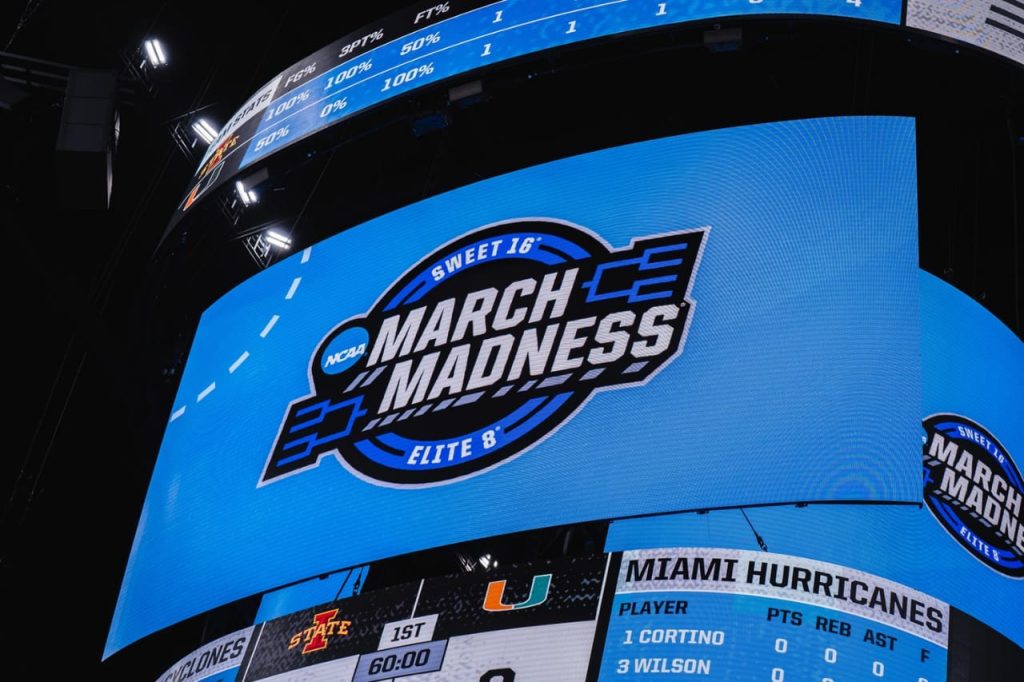When it comes to the US’s biggest sporting events, most people think of the NFL and its championship Super Bowl game. However, in terms of viewership and fan engagement, the NCAA’s March Madness basketball tournament for collegiate sports is far larger in terms of production and following.
CBS and Turner Sports estimate that just over 9 million viewers tune in to each March Madness event. Basketball fans nationwide are also more likely to schedule surgeries during March to leverage their recovery time for prime basketball viewing. Meanwhile, one MSN survey found that up to 60% of all office workers are involved in some type of March Madness tournament pool.
At the center of the March Madness hype each year is something called Bracketology. It’s unique to basketball and specific to the NCAA’s championship tournament. The topic covers which teams start the tournament in which bracket, then how each segment will pan out as the single-elimination tournament unfolds.
It’s only one facet of NCAA Championship odds offered from sportsbooks, which also cover Sweet Sixteen, Elite Eight, and many more aspects of bracket-based betting. In other words, it’s a way for fans to try to predict how each team will do in the tournament by relying on a range of input, from last year’s record to coaching staff.
Let’s take a closer look.
A Basic Introduction to Bracketology
As mentioned above, Bracketology is a way to predict how each team will advance in March Madness (though it’s now been adapted for other basketball and sports leagues). Some use bracketology to help inform their wagers, while others enjoy it just for the challenge and chance at glory.
In 2022, 68 teams entered March Madness and were scheduled to play across 14 cities nationwide. Given the number of teams involved in the championship tournament, predicting a winning bracket is extremely difficult—first, participants start with eight segments with four teams each, then must whittle down who advances from game one, then game two.
In fact, no one has ever filled out a perfect bracket prediction. The chances are around 1 in 120 billion, according to the NCAA.
Strategic Bracketology
Clearly, there’s an incredible depth of information and analysis that goes into each bracket prediction. Major publications from CBS to ESPN create their own bracketology based on input from various pundits, which includes predictive elements based on algorithms (or ‘computer picks’).
In fact, most bracketology strategies include combining pundit and computer analysis. Some AI-based formulas comb through historical stats, such as conference results, defensive and offensive ratings, and deep-dives on regional competition in the Midwest, West, and so on.
But not all approaches to bracketology are so stringently based on stats and analysis. As mentioned above, participating in March Madness tournament pools is a cultural aspect of sporting life in many areas—it’s a hobby, not a profession.
Some build out their brackets in reaction to how others make selections; Duke fans will likely choose Duke to win, no matter what the stats say. Meanwhile, others may choose entirely inane ways to build a bracket—even by pitting mascots against one another or choosing based on famous alumni.
Common Bets in Bracketology
Though there are plenty of goofy ways to fill out all 68 positions in a starting March Madness bracket, most participants are in it to show off their knowledge of the NCAAB. For these types of seasoned fans, some of the most important and exciting bets cover how each bracket advances.
The first weekend covers the First Round; 34 of 68 teams are eliminated immediately. From there comes the Second Round, when the competition is whittled down to 16. This is one of the most popular wagers, which is called the ‘Sweet 16’ phase.
The fourth round of the tournament covers the ‘Elite Eight’, then the ‘Final Four’ before the championship match. Though, as mentioned above, predicting the final champion is a popular wager, so are the previous rounds. Predicting the Sweet 16 and Elite Eight teams is one of the core goals in bracketology—especially considering how improbable it is to select a winner of 68 choices.

“Incurable thinker. Food aficionado. Subtly charming alcohol scholar. Pop culture advocate.”







More Stories
Kamala has warned that democracy in America will be in danger if Trump wins
The world’s rarest donkey has been born at a zoo in the United Kingdom; Watch the video
Senators travel to America in search of best practices…